Programme of the winter semester 2021
|
|
| |
|
150 Jahre BAM – Wissenschaft mit Wirkung - Science with Impact
The Bundesanstalt für Materialforschung und -prüfung (BAM) is celebrating its 150th anniversary with a series of lectures under the general motto "Science with Impact".
Within this series and in cooperation with the FU Berlin (Departments of Biology, Chemistry and Pharmacy as well as Geosciences), BAM is organising a special lecture sequence.
Join us for a virtual trip around the world: on six Thursdays from 14 October to 18 November, always from 4 to 6pm.
Six renowned international scientists will share their ground-breaking observations of processes on this planet.
The spotlight is on interactions of living organisms and landscapes /materials as mediators of global change in all regions of the Earth.
SPEAKERS (updated 27.09.2021):
14.10.2021 | Prof. Dr. Todd Ehlers: How Plants Shape Mountains
Chair of Geology, Department of Geosciences, University of Tübingen
Currently Moore Distinguished Scholar, California Institute of Technology, USA
21.10.2021 | Prof. Dr. Liane Benning: Algae darken Greenlands ice – small cells, huge consequences
Helmholtz Centre Potsdam GFZ German Research Centre for Geosciences - Head of Section “Interface Geochemistry”
Professor for Interface Geochemistry, Freie Universität Berlin
28.10.2021 | Prof. Dr. Lisa Gieg: Microbes in man-made systems
Lead of geno-MIC “Managing Microbial Corrosion in Canadian Offshore and Onshore Oil Production” project
Professor (Associate), Department of Biological Sciences at University of Calgary, Canada
04.11.2021 | Prof. Dr. Friedhelm von Blanckenburg: Does life drive rock weathering?
Helmholtz Centre Potsdam GFZ German Research Centre for Geosciences – Head of Section “Earth Surface Geochemistry”
Professor of the Geochemistry of the Earth Surface, Freie Universität Berlin
11.11.2021 | Prof. Dr. Antje Boetius: Global change microbiology — big questions about small life for our future
Director Alfred-Wegener-Institute, Helmholtz-Centre for Polar and Marine Research
Deputy director MARUM Centre for Marine Environmental Science (MARUM) University Bremen
Professor Max Planck Institute for Marine-Microbiology
18.11.2021 | Prof. Dr. Dirk Wagner: Of survival artists and superheroes — microbial life in terrestrial extreme habitats
Director Department Geochemistry, Helmholtz Centre Potsdam GFZ German Research Centre for Geosciences
Head of Section “Geomicrobiology”
Professor for Geomicrobiology and Geobiology at University of Potsdam
Language: English
Where: Online via Webex
Access information: see the event page at BAM:
Link to event page: https://www.bam.de/Content/DE/Veranstaltungen/2021/2021-10-14-microbes-and-environmental-chemistry.html
Link to homepage: https://www.150.bam.de/
|
|
| |
|
25.11.2021
Dr. Andreas Hübner
(FU Berlin)
Research Data Publication: how to do it FAIR and open
The talk deals with current standards in data publication, explains researchers´ role in making data findable, accessible, interoperable and re-usable (FAIR), and covers legal aspects including data licensing. While data repositories, publishers and institutions all have their own roles in enabling “FAIR and open” publishing, this talk focuses on the perspective and core tasks of researchers for best practice in research data publication
Andreas Hübner has been working as liaison librarian for the geosciences at the University Library of Freie Universität Berlin since summer 2021. He holds a PhD in geology and worked as postdoc at the University of Utrecht, The Netherlands. He joined the GFZ German Research Center for Geosciences in 2006, working on various projects related to public relations and science communication. His last project at GFZ was working five years for the Specialised Geoscience Information Service FID GEO. In this respect he was also part of the research data team at the GFZ.
https://www.fu-berlin.de/sites/ub/ueber-uns/team/huebner
Invited by: Elis Hoffmann
——
Talk (~ 36 min.): Presentation available online from 22.11.2021 https://fu-berlin.eu.vbrickrev.com/sharevideo/9ad77383-d9d9-4ad7-8f5e-835925a152b0
The video is available within the FUB intranet, and also from outside the FUB.
Live event starts on Thursday, 25 November at 17:00:
Live video conference: https://bbb.planet.fu-berlin.de/b/geo-gzn-j9j-yc4
The live discussion will be online from 17:00
Introduction by Elis Hoffmann
Discussion: How to login:
Live video conference: https://bbb.planet.fu-berlin.de/b/geo-gzn-j9j-yc4
|
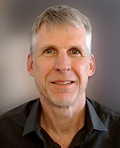

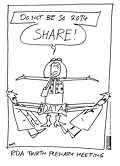
|
| |
|
02.12.2021
Prof. Dr. Jürgen Köpke
(Leibniz Universität Hannover)
Scientific drilling in the Oman ophiolite: new insights into the mechanism of accretion of fast-spreading oceanic crust
Invited by: Harry Becker
The talk deals with Scientific drilling in the Oman ophiolite in the frame of the ICDP (International Scientific Continental Drilling Program) Project "The Oman Drilling Project", which aims to test models related to the formation and alteration of oceanic lithosphere. The results of investigating the crustal drill cores embedded in an effort to present a reference section through the whole Oman paleocrust leads to a deeper understanding of the mechanism of accretion of fast-spreading oceanic crust.
After studying "Mineralogy" at the Technische Universität Braunschweig, I worked at the University of Hannover, where I used experimental and microanalytical methods. My main interests are the geodynamics of mid-ocean ridges with focus on magmatic processes at the interface between igneous and hydrothermal processes and the role of water during construction of the ocean crust.
–––
The event will be at GeoCampus Lankwitz, lecture Hall G202, and will be streamed live on Thursday from ca. 16:00.
Access: For lectures at the FU, the 3-G-rule is still in force.
Bei Lehrveranstaltungen an der FU ist nach wie vor die 3-G-Regelung in Kraft.
As far as we know, masks are required during lectures; there is no capacity limit for the lecture hall. We urge you to keep as much distance as possible in the lecture hall.
Nach unserer Kenntnis gilt weiterhin die Maskenpflicht bei Lehrveranstaltungen, eine Kapazitätsbegrenzung des Hörsaals gibt es nicht. Wir bitten Sie dringende, sowie wie möglich Abstand im Hörsaal zu wahren.
Introduction and talk will commmence at 16:15, followed by a discussion.
Meeting-Link:
https://fu-berlin.webex.com/fu-berlin/j.php?MTID=m831e3a0eaa5b4867eb05afff9bcbccc0
Meeting-no:
188 567 3759
Password:
aXTPYn2x3G8
Introduction and moderation: Harry Becker
——
Preview of the Presentation available online from 30.11.2021 (~ 52 min.):
https://fu-berlin.eu.vbrickrev.com/sharevideo/75ba5803-199e-4848-b6ad-ecb5dbe1da1d
(The video is available within the FUB intranet, and also from outside the FUB)
|


|
| |
|
cancelled: 09.12.2021
Dr. Astrid Holzheid
(Universität Kiel)
The Fate of PGE During Mantle Melting
Invited by: Ralf Milke
|
|
| |
|
16.12.2021
Dr. Lieke Melsen
(Wageningen University & Research)
It takes a village to run a model
Models are frequently used tools in research, and often perceived as objective tools to create new knowledge or to support decision making. In this talk, I will discuss social processes that influence modelling, and that therefore have implications on the objectivity of models. If we start to acknowledge that models are social constructs, we might adapt our way of working with models to the better of science and decision support.
Bio:
Lieke works as an assistant professor in the field of Computational Hydrology at Wageningen University, the Netherlands. During her PhD, she investigated technical uncertainty in hydrological models. This made her realize that the results were conditional on her own decisions, and made her decide to focus research on the decision-making process in the selection and configuration of models. She is now involved in research projects that focus on different parts of modelling, from participatory approaches to the development of good modelling practice guidelines.
Invited by: Theresa Frommen
Live event starts on Thursday, 16 December at 16:15:
Live video conference: https://bbb.planet.fu-berlin.de/b/geo-gzn-j9j-yc4
We will open the video conference room for log-in at 16:00.
We will use BigBlueButton, an OpenSource video-conference solution, hosted at the FU Geosciences dept. by the section Planetary Sciences and Remote Sensing
If you don’t know BigBlueButton yet, you may want to watch some introductory videos here: https://bigbluebutton.org/html5
|
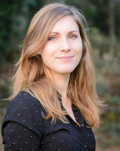

|
| |
|
06.01.2022 - no presentation
|
|
| |
|
13.01.2022
Dr. Vitor Barrote
(FU Berlin)
Surge of ore metals in seawater and increased bio-activity in an Archaean VHMS deposit
The Nimbus Ag–Zn(–Au) deposit is a hybrid VHMS deposit with epithermal characteristics formed in the Eastern Goldfields Superterrane, Yilgarn Craton, under shallow water (~ 700 mbsl), low-temperature conditions. Trace elements in sedimentary nodular pyrite from multiple intervals along a single drillhole (NBDH010), indicate the existence of a sedimentary layer of enriched ore-metal content. Within this enriched interval, proxies indicate that the black shale matrix of the polymict conglomerate records increased bio-activity at that time, interpreted to be associated with the Ag–Zn(–Au) mineralization. The consequences of these observations are two-fold, they help better understand the paleo-envirement where increased biological activity would be recorded during the Archean, as well as help us develop exploration strategies in the search for similar deposits.
https://doi.org/10.1007/s00126-020-00986-6
Bio:
Vitor Barrote is a Postdoctoral researcher at the AG Geochemistry group at Freie Universität Berlin. His research interests lie in the field of isotopic geochemistry and geochronology, with a special interest in technical development and the use of multidisciplinary studies applied in unorthodox ways in order to solve unusual problems. He believes that mineral deposits are rare records of amplified geological processes, and could hold fundamental keys to the understanding of major questions that every geoscientist asks themself: the history of Earth’s evolution, the spark of life and what makes our planet so special. Vitor Barrote is also a member of the Traveling Geologist team and the host for Gneiss Chats on the Geology Podcast Network.
https://www.travelinggeologist.com/podcast/gneiss-chats
Invited by: Elis Hoffmann
Live event starts on Thursday at 16:15:
Live video conference: https://bbb.planet.fu-berlin.de/b/geo-gzn-j9j-yc4
We will open the video conference room for log-in at 16:00.
We will use BigBlueButton, an OpenSource video-conference solution, hosted at the FU Geosciences dept. by the section Planetary Sciences and Remote Sensing
If you don’t know BigBlueButton yet, you may want to watch some introductory videos here: https://bigbluebutton.org/html5
|
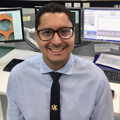

|
| |
|
20.01.2022
Dr. Patricia Martinez-Garzon
(GFZ Potsdam)
Identification of stress loading sources in the brittle crust at various scales: examples from Southern California and beyond
Earthquakes are violent processes associated with movement of the rock mass along fractures/faults, originating from continuous changes in the stress and strain field. Improved determination of the stress field is crucial for advancing in estimating seismic hazard and identifying main drivers of crustal deformation. At long wavelengths, the regional stress pattern is largely controlled by the plate motion. For intraplate regions, where distance from the plate boundary increases, additional loading sources become prominent, including surface loading or isostatic compensation. However, as earthquake detection capabilities improve due to densification of seismic networks, heterogeneities in the stress field can be resolved at regional and even at local scale. In this talk I review some of the main stress loading sources that influence the stress field at regional to local scale, including (1) the effect of local topography, (2) the presence of geological structures, (3) co-seismic stress changes, and (4) anthropogenic stress loading. I will illustrate the role of some of these local stress loading sources in the deformation and mechanics of faulting from some regions of the San Andreas Plate Boundary System, including the San Jacinto Fault Zone and the South Central Tranverse Ranges.
Bio:
I studied Fundamental Physics and a Master in Geophysics and Meteorology at the Universidad Complutense of Madrid. Then, I studied my PhD at the GFZ Potsdam and Free University of Berlin on the topic of “Seismo-mechanical characterization of fluid-induced seismicity”. I currently lead a Helmholtz Young Investigators Group at GFZ Potsdam (SAIDAN: www.saidan.org) related to the study of crustal deformation processes spanning a broad range of frequencies from seismic to aseismic. My main interests concern the study of earthquake physics and the imaging of fault state of stress and how can we utilize them to refine the assessment of seismic hazard.
Invited by: Marco Bohnhoff
Introduction video
Talk (~ 45 min.): Presentation available online
The videos are available within the FUB intranet, and also from outside the FUB.
The live discussion will be online from 17:00
Live event starts on Thursday at 17:00:
Live video conference: https://bbb.planet.fu-berlin.de/b/geo-gzn-j9j-yc4
|
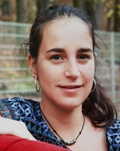



|
| |
|
27.01.2022
Dr. Melanie Sieber
(Universität Potsdam)
Experimental study on fluid-driven carbonation of the forearc mantle
Significant amounts of carbon are released from the subducting slab into fluids, but less carbon is outgassed in arc volcanoes. This study investigates the fate of COH-fluids when they travel through the (partially) hydrated forearc mantle targeting the forearc mantle as a potentially relevant carbon reservoir.
Thermodynamic modelling and piston‑cylinder experiments are utilized to gain a comprehensive understanding on phase relations, trace element partitioning, reaction magnitudes and timescales when COH‑fluids infiltrate into serpentinites and peridotites between 1‑2.5GPa and 375‑750°C. The results are applied to carbonated high‑pressure rocks from the Western European Alps.
Bio:
Melanie Sieber is a Postdoctoral researcher at the AG Mineralogy at the University of Potsdam and lab manager of the internally heated gas-pressure vessel (IHPV) lab (GeoX Joint lab between University of Potsdam and GFZ). She holds a PhD in experimental petrology from the Australian National University and investigates by performing high pressure and temperature experiments the stability of carbonates in the upper mantle and the partitioning of trace element during crustal anatexis.
https://www.uni-potsdam.de/de/geo/institut/mitarbeiter/sieber-melanie
Invited by: Susan Schorr
Live event starts on Thursday at 16:15:
Live video conference: https://bbb.planet.fu-berlin.de/b/geo-gzn-j9j-yc4
We will open the video conference room for log-in at 16:00.
We will use BigBlueButton, an OpenSource video-conference solution, hosted at the FU Geosciences dept. by the section Planetary Sciences and Remote Sensing
If you don’t know BigBlueButton yet, you may want to watch some introductory videos here: https://bigbluebutton.org/html5
Introduction and moderation: Susan Schorr
|
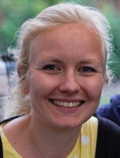
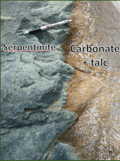
|
| |
|
03.02.2022
|
|
| |
|
10.02.2022
cancelled (postponed to summer term 2022)
Dr. Jolie Egbert
(GFZ Potsdam)
Soil gas analytics in geothermal resource assessment
Invited by: Michael Schneider
|
|
| |
|
The programme and lecture information are distributed via the colloquium mailing list: https://lists.fu-berlin.de/listinfo/geokolloquium.
You can subscribe to the list yourself via the link. We usually send out the announcement of the lectures at the beginning of the week in which a lecture takes place, as well as a short reminder on the day of the lecture, nothing more.
Über die Kolloquiums-Mailingliste werden das Programm und Vortragsinfos verteilt: https://lists.fu-berlin.de/listinfo/geokolloquium.
Sie können sich über das Link selbst zur Liste anmelden. Wir verschicken die Ankündigung der Vorträge meist am Anfang der Woche, in der ein Vortrag stattfindet, sowie eine kurze Erinnerung am Tag des Vortrags, mehr nicht. |
|
| |
|
| |
|














